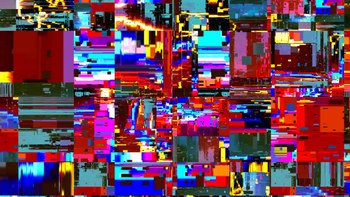Audiovisual Data: Data-Driven Perspectives for Media Studies
Data:
Luogo: DAMSLab/Auditorium (Piazzetta P.P. Pasolini, 5b - Bologna) - Evento in presenza e online
Tipo: DAMSLab

Organized by Giorgio Avezzù (Università degli Studi di Bergamo) and Marta Rocchi (Università di Bologna)
In collaboration with Mirko Degli Esposti (Università di Bologna) and Guglielmo Pescatore (Università di Bologna)
This year Media Mutations intends to be an opportunity both to investigate what we can do with data, and to reflect on what data can be. We aims to promote discussion on systematic methods to conduct data-driven research in film and media studies.
The international conference Media Mutations, in its thirteenth edition, focuses on datafication of audiovisual media content and audiences, and data-driven methods and methodologies for the study of films and TV series. Quantitative perspectives applied to narrative audiovisual texts and consumption have not been absent in the history of film and media studies, but they have often been received with some resistance from proponents of more traditional approaches. However, in recent years, influential researchers’ initiatives have highlighted both an opportunity to explore the potential of these studies and a gap between the possibilities of digital data and computational tools and their application in media studies. Nowadays, as data analytics and artificial intelligence strategies have gained importance in many areas of the media industries, the number of data-driven studies has also increased and gained traction in the academic debate and in the wider field of film, media, and sound studies. Indeed, several methodological lines of inquiry have been developed to discover patterns, trends, or characteristics of audiovisual products, such as processing textual objects through multimodal approaches, social discursivity through automated software, or evaluating production and consumption processes through social network analysis and modeling techniques. All these research projects are based on specific tools for the collection and analysis of audiovisual media data through statistical and modeling tools.
Drawing on these considerations, the conference aims to bring attention to and promote discussion on systematic methods to conduct data-driven research in film and media studies. The conference intends to be an opportunity both to investigate what we can do with data, and the analytical and interpretative possibilities at stake, and to reflect on what data can be (and what kind of data we must deal with), to problematize the possible limits of such approaches to the study of audiovisual narrative media.